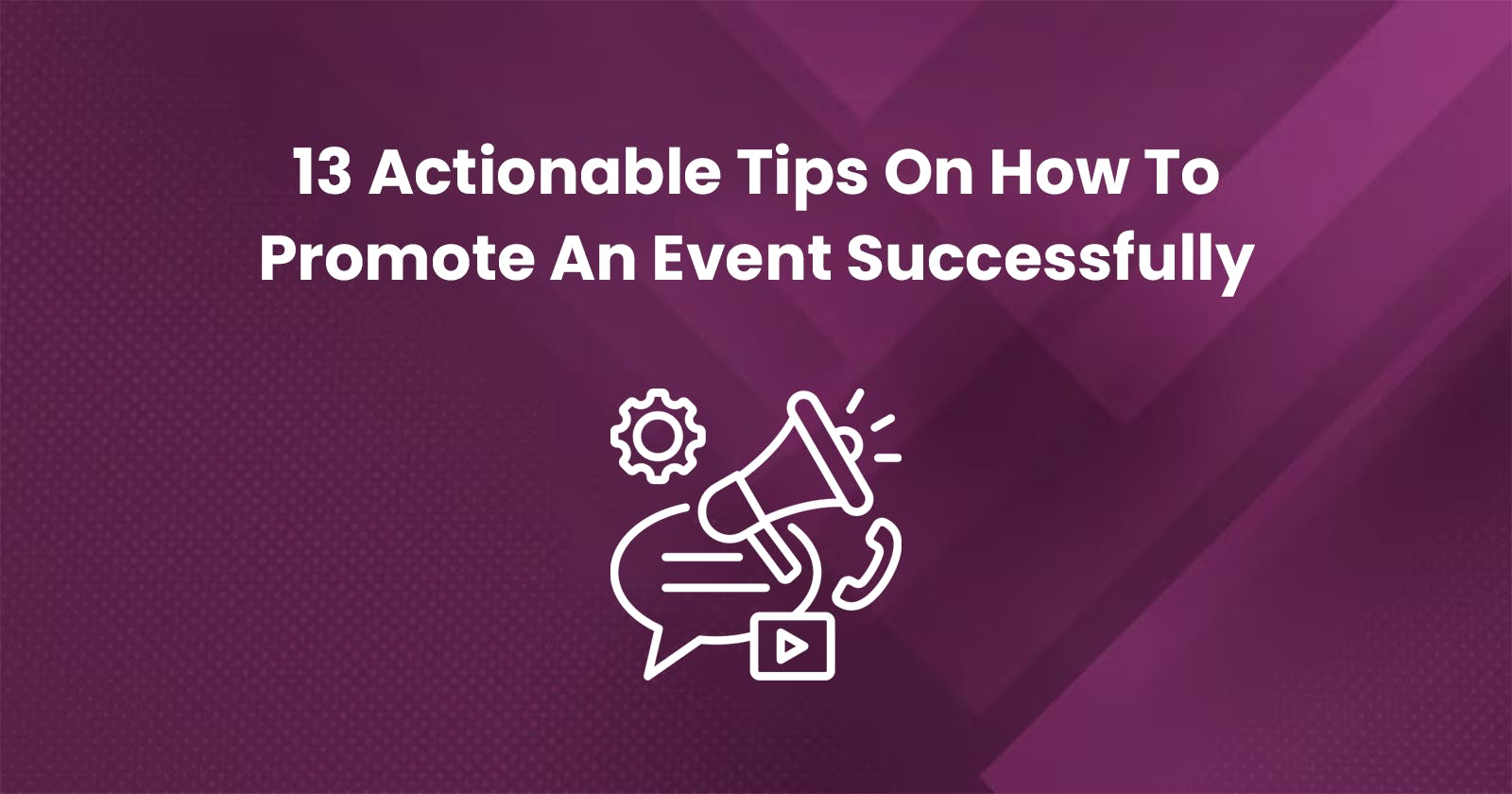Organizing an event that truly shines requires more than just the basics. In a world filled with information, getting noticed can be a real challenge. Drawing a substantial audience requires strategic efforts beyond traditional marketing methods.
That's why we're here with 13 straightforward tips to help you promote your event successfully. We'll cover everything from setting up a great event website to teaming up with influencers.
Whether you're planning a community get-together or a professional conference, these tips are tailored to help you overcome common hurdles.
By the end, you'll have a toolkit of strategies to make sure your event gets the attention it deserves.
With that said, let’s get right in!

Create an event website and landing page
SEO optimize your event landing page
Strategize email marketing campaigns
Implement early bird discounts and special tickets
Generate your own custom QR codes
Create event-specific branding
Collaborate with influencers and sponsors
Referral contests and social media giveaways
Include teasers and pre-event BTS content
Engage with Facebook groups and communities
Utilize paid advertising
Crowdsource marketing material
Leverage traditional marketing practices
1. Create an event website and landing page
A dedicated event website acts as the virtual headquarters for your event. It's where potential attendees go to get all the crucial details. A clear and user-friendly layout is key.
Make sure important information like date, venue, agenda, and ticketing details are prominently displayed.
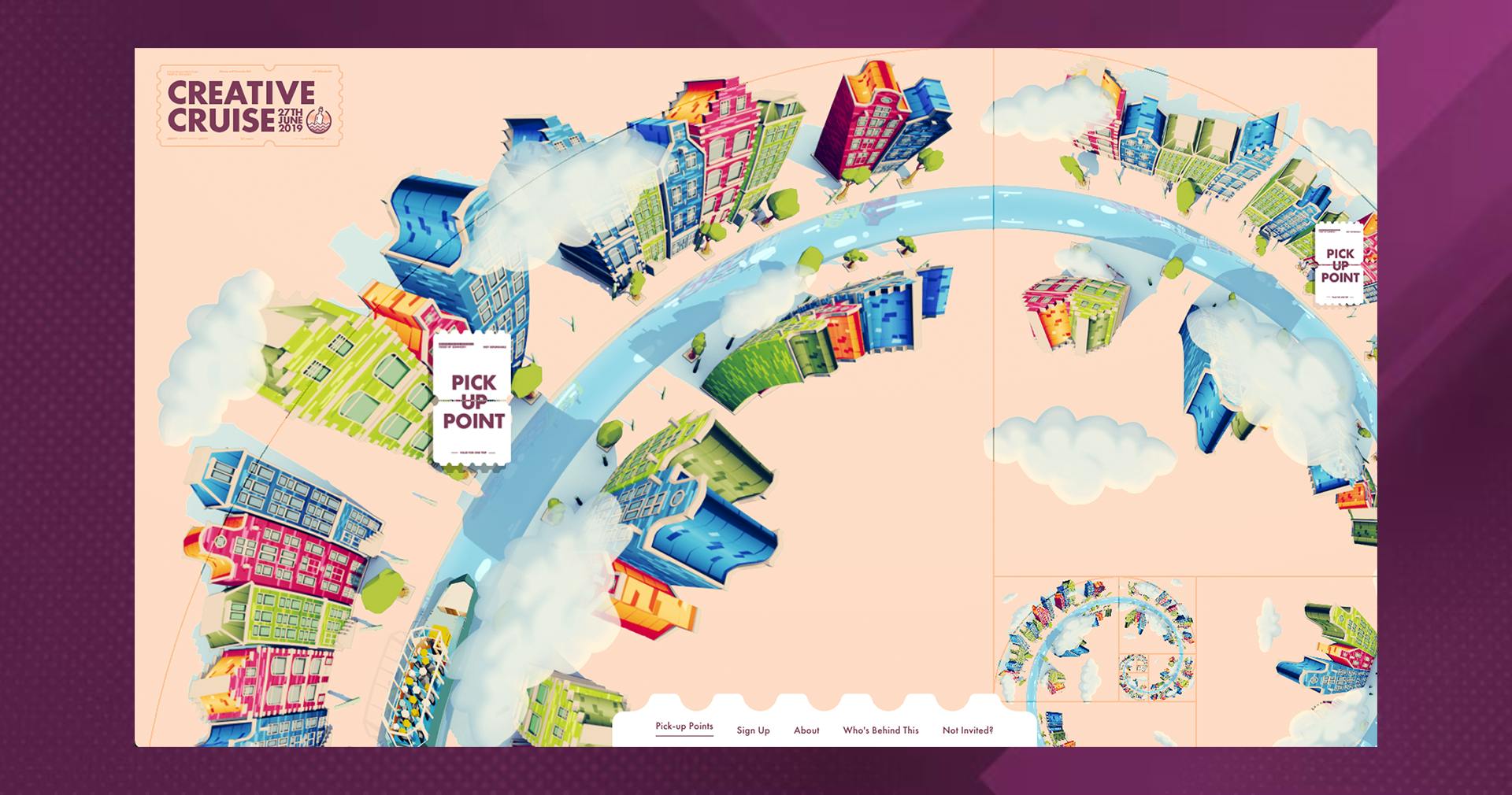
Your event landing page should provide a seamless user experience. Ensure fast loading times and mobile-friendliness. Intuitive navigation helps visitors find information effortlessly.
Include clear calls-to-action (CTAs) for actions like registering or purchasing tickets.
With event management platforms like KonfHub, creating an event landing page is as easy as clicking a button, and you can customize it with your branding.
Here’s where you can learn more about leveraging KonfHub’s customizable event templates to suit any event’s needs.
2. SEO optimize your event landing page
Optimization for search engines (SEO) is vital. Use relevant keywords like the event name, location, and related terms to ensure your website ranks high in search results. This increases the chances of potential attendees finding your event when they search online.
Here are some detailed steps to enhance the visibility of your event.
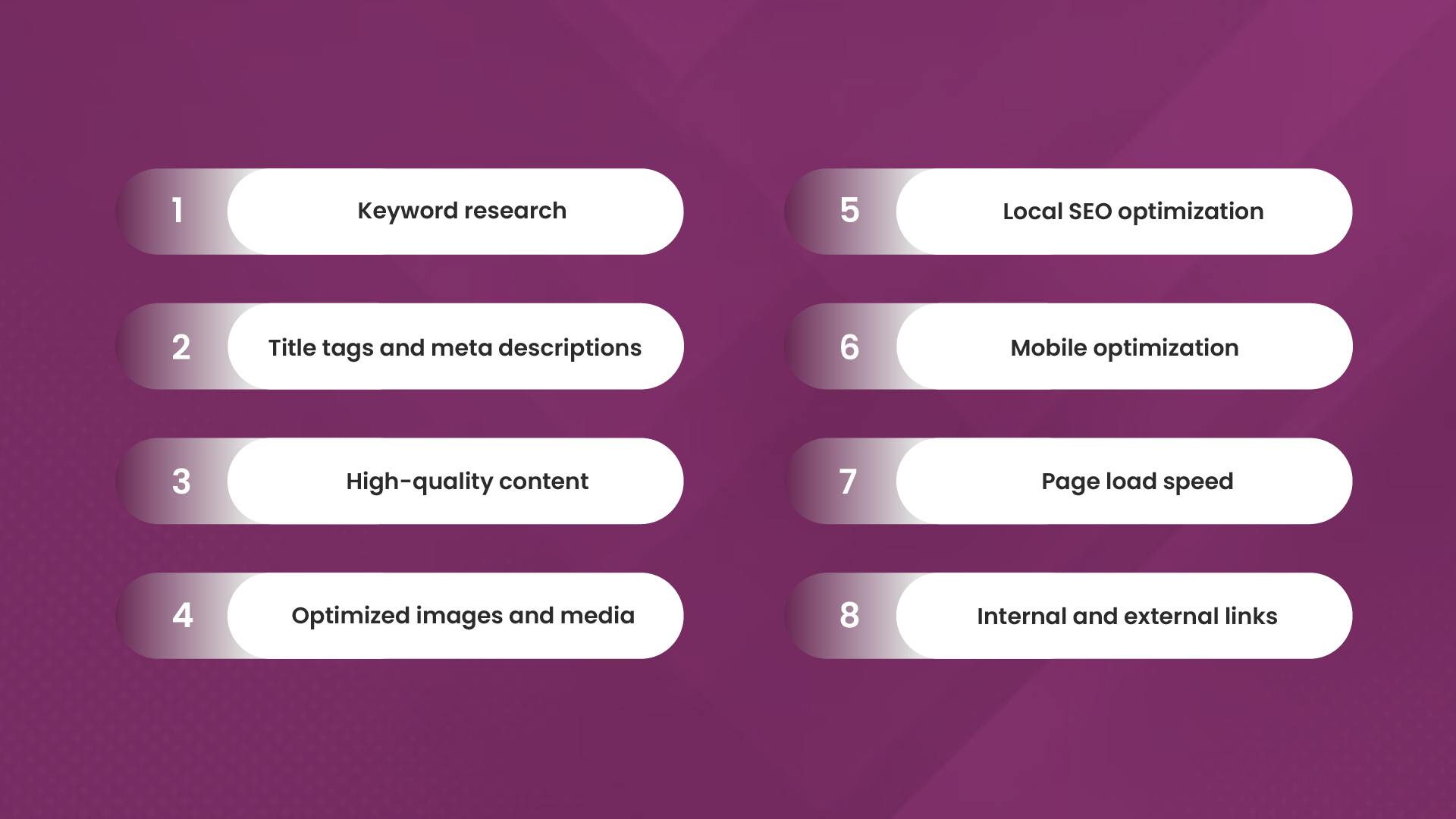
- Keyword research: Begin by conducting thorough keyword research. Identify relevant terms and phrases that potential attendees might use when searching for events similar to yours. Incorporate these keywords naturally into the content of your landing page.
- Title tags and meta descriptions: Craft compelling title tags and meta descriptions that accurately represent the content of your event landing page. Include relevant keywords in these elements to improve search engine rankings.
- High-quality content: Create informative, engaging, and high-quality content for your event landing page. This not only provides value to visitors but also improves the page's SEO performance. Ensure that the content is original, relevant, and well-structured.
- Optimized images and media: Compress images to reduce page load times, which is a crucial factor in SEO. Use descriptive alt tags for images to provide context for search engines.
- Local SEO optimization: If your event is location-specific, optimize for local SEO by including location-based keywords and ensuring your event venue's details are accurate and consistent across all platforms.
- Mobile optimization: With an increasing number of users accessing the internet via mobile devices, ensure that your event landing page is mobile-friendly. Google prioritizes mobile-friendly pages in its search rankings.
- Page load speed: Optimize your landing page to load quickly. Slow-loading pages can negatively impact user experience and SEO rankings.
- Internal and external links: Incorporate relevant internal and external links on your event landing page. Internal links should lead to other relevant pages on your event website, while external links should point to authoritative and credible sources.
3. Strategize email marketing campaigns
Email marketing is a potent tool for event promotion. Start by building a clean and targeted email list. Collect addresses from previous events, website sign-ups, and social media.
Once you have your list, segment it. This means categorizing subscribers based on factors like location, interests, or past attendance. This ensures your messages are relevant and resonate with each group.
Crafting engaging content is key. Start with a compelling subject line that sparks curiosity. For instance, "Unveiling Exclusive Workshops: Your Invitation to [Event Name]!" or "Don't Miss Out on [Event Name]: Limited Seats Left!"
In the body, be clear about the event's value and what attendees can expect. Use visuals like images or videos to make the content more appealing. Include a prominent call-to-action, guiding recipients on what to do next, like registering or sharing the event with friends.
Timing is crucial. Schedule emails strategically, keeping in mind your audience's preferences and time zones. A well-timed email can significantly boost open and click-through rates. Finally, track performance.
Analyze metrics like open rates, click-through rates, and conversions. This data helps refine your approach for future campaigns, ensuring they get even more effective.
4. Implement early bird discounts and special tickets
Early bird discounts and special ticket offers are powerful incentives for driving early registrations. They tap into the human desire for value and exclusivity.
By providing discounted rates for early registrations, you create a sense of urgency and encourage potential attendees to commit sooner rather than later. This is particularly effective for events where attendance spots are limited.
Special ticket offers, such as VIP packages or bundled deals, add an extra layer of allure. VIP tickets, for example, can provide premium access or additional perks, enticing attendees who seek a more exclusive experience.
Bundled deals, on the other hand, can attract groups or individuals looking for comprehensive event packages.
KonfHub takes this a step further by offering a range of tiered ticketing options:
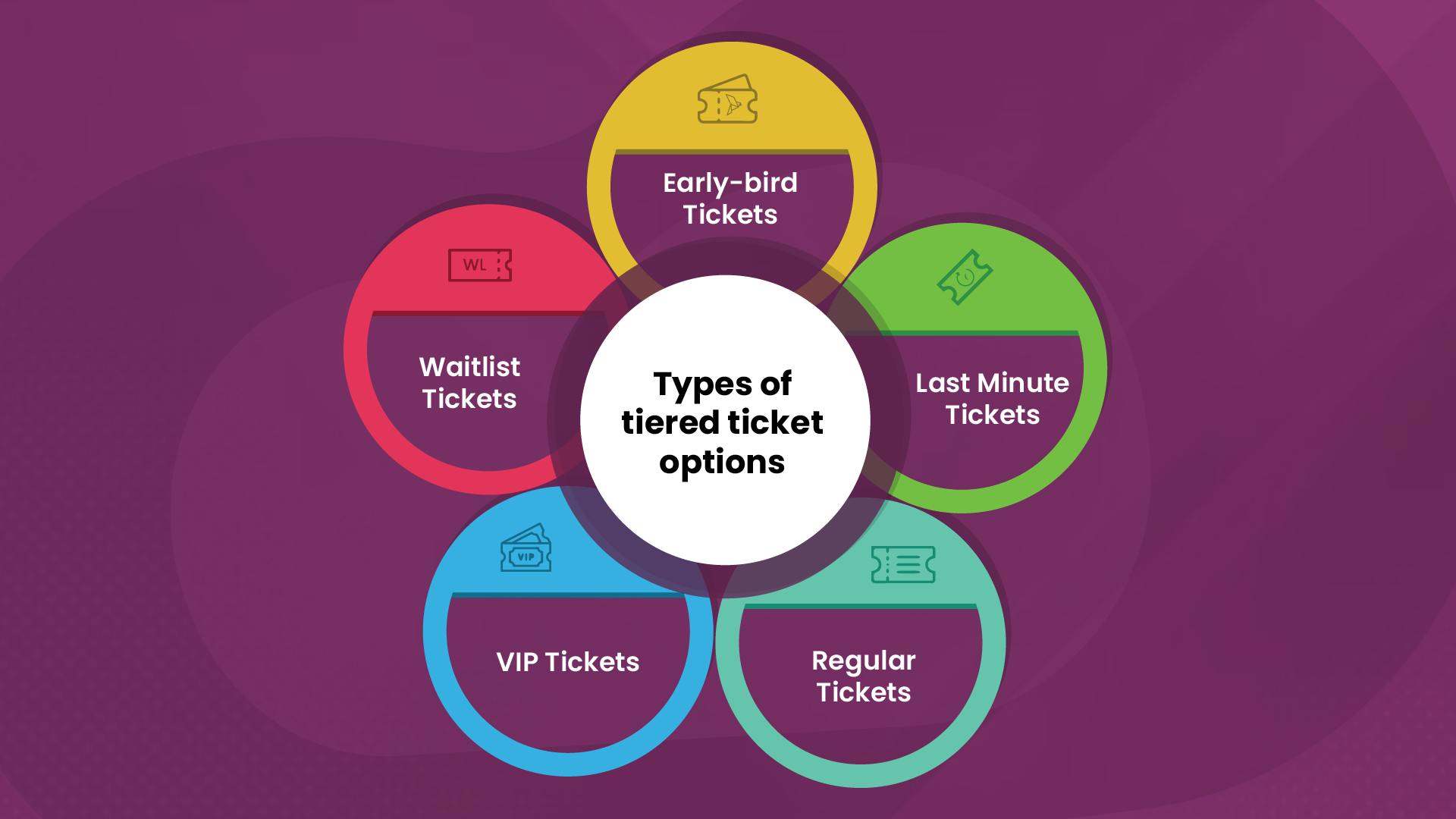
- Early-bird tickets: Reward early registrants with discounted rates, encouraging commitment.
- Regular tickets: Standard pricing for those registering after the early bird period.
- Last-minute tickets: Cater to those deciding to attend in the final stretch.
- Waitlist tickets: Capture interest for sold-out events, potentially accommodating more attendees.
- VIP tickets: Offer enhanced access or amenities for an exceptional event experience.
Want to learn more on how to increase your online ticket sales? Check out this article: 13 Proven Tips To Increase Online Ticket Sales For Any Event.
5. Generate your own custom QR codes
Custom QR codes offer a seamless bridge between physical materials and online content. They encode crucial event details, registration links, and special offers, providing attendees with instant access to essential information.
Creating custom QR codes is straightforward. Begin by selecting a reliable QR code generator tool. Platforms like QR Code Generator or KonfHub's built-in feature Check-in App ensure reliable results.
Next, choose what information to encode - event details, website links, RSVP forms, or exclusive content.
Customization is key. Align the QR code with your event's branding by adding colors, logos, or visual elements. Test for scannability to guarantee a seamless experience for attendees.
Integrate the QR code into various promotional materials like flyers, posters, brochures, or digital platforms like emails and social media.
Lastly, monitor and track performance. Utilize tracking tools to analyze metrics such as scan rates, location data, and time of scans. This data provides valuable insights into which promotional channels are most effective.
6. Create event-specific branding
Consistent branding is the cornerstone of a successful event. It establishes a cohesive visual and emotional identity that resonates with your audience.
When attendees encounter your event's branding across various touchpoints, it reinforces recognition and trust.
Here are some tips for creating a memorable brand identity:
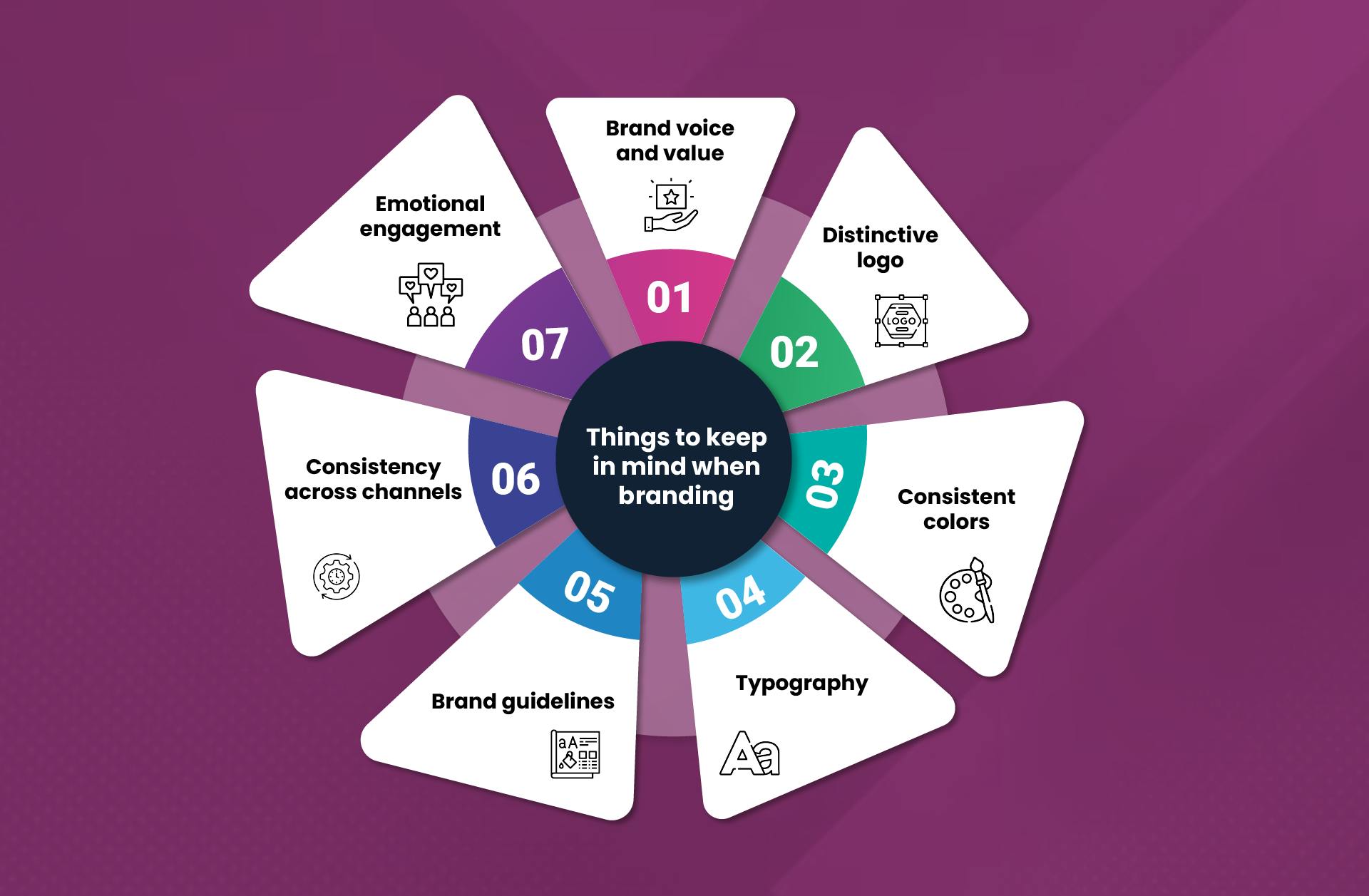
- Define your brand voice and values: Identify the tone and personality that align with your event's purpose and message. This sets the foundation for how you communicate with your audience.
- Design a distinctive logo: Your logo is the visual centerpiece of your brand. It should be unique, easily recognizable, and reflective of the event's essence.
- Select a consistent color palette: Choose a set of colors that evoke the right emotions and resonate with your target audience. Use these colors consistently across all materials.
- Typography matters: Select fonts that are legible and complement the overall design. Consistency in font usage maintains a professional and polished look.
- Create brand guidelines: Document your brand elements, including logo usage, color codes, and font choices. This ensures consistency in all promotional materials.
- Integrate branding across all channels: Apply your brand consistently on event websites, social media profiles, email communications, and physical materials like banners and flyers.
- Engage your audience emotionally: Use your branding to evoke emotions that align with the event's goals. Whether it's excitement, trust, or inspiration, your branding should resonate with attendees.
To understand event branding better, we recommend checking out this article: Mastering Event Branding: Creating Memorable Experiences.
7. Collaborate with influencers and sponsors
Collaborating with influencers and sponsors can significantly enhance the visibility of your event. The first step is to carefully identify individuals or companies whose audience aligns with your event's target demographic and interests.
Look for those with a credible and engaged following, as they can serve as powerful advocates.
Influencers wield a dedicated following that trusts their recommendations, while sponsors bring their own level of credibility and industry authority. Their endorsement of your event can significantly boost its visibility and credibility.
With KonfHub's Sponsor App, sponsors are provided with a convenient tool to capture leads by scanning attendee QR codes. This not only enhances their experience but also provides them with valuable post-event leads.
Here’s where you can learn more about KonfHub’s Sponsor App.
8. Referral contests and social media giveaways
Hosting referral contests and social media giveaways is a dynamic way to boost event visibility. It taps into the viral nature of social media, reaching a wider audience and generating buzz around your event.
Contests create a sense of excitement and engagement, motivating participants to not only enter but also share with their network.
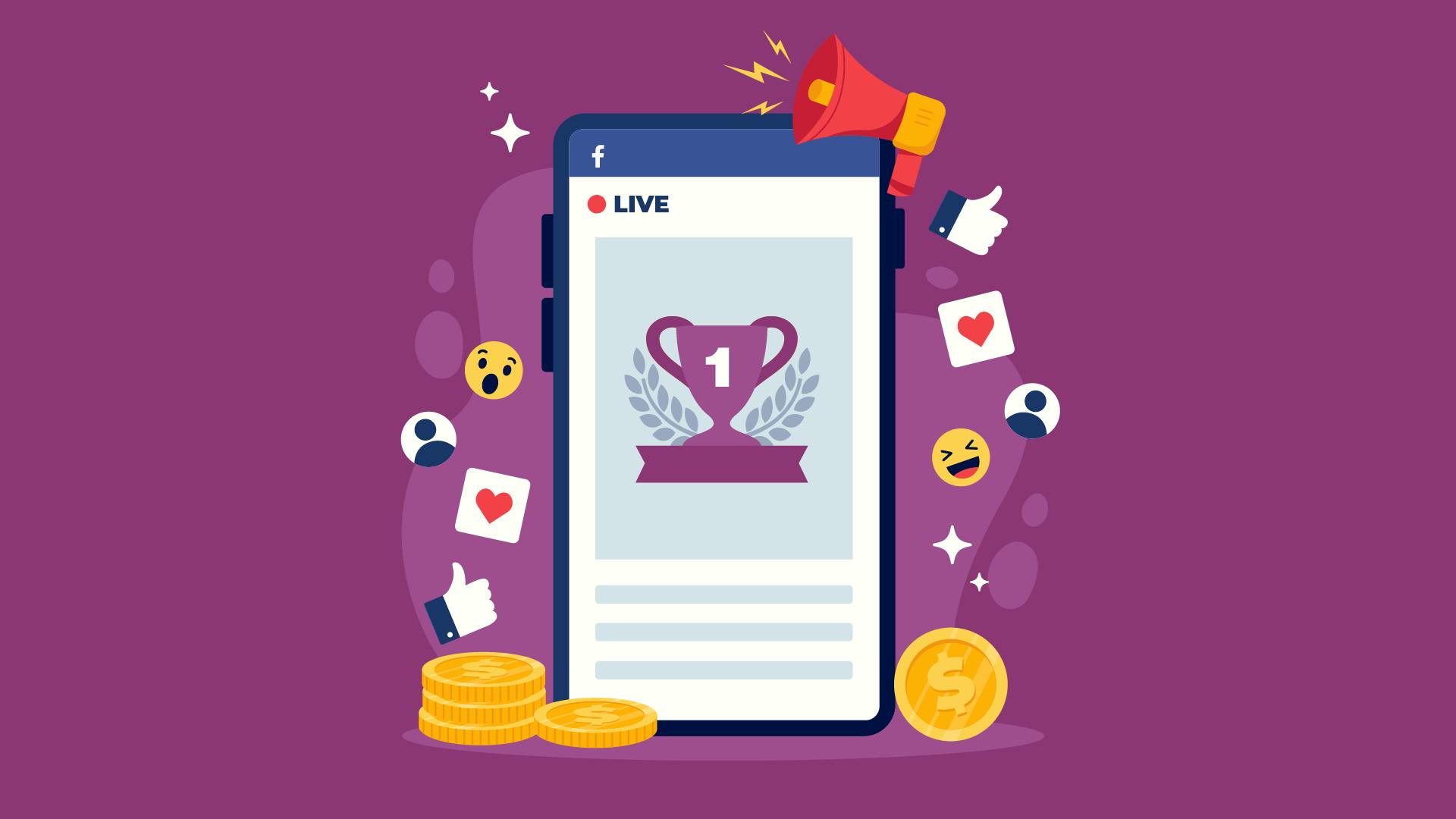
Consider running a 'Share to Win' contest, where participants share a post about your event on their own profiles to enter. This amplifies your event's reach as it gets shared among diverse social circles.
Alternatively, a 'Caption This' contest can be entertaining and encourage creativity. Ask participants to provide captions for event-related images or videos, creating interactive and shareable content.
KonfHub further enhances this strategy by offering referral contests. This feature significantly boosts the number of ticket sales. By incentivizing attendees to refer others to the event, you tap into a powerful network effect, expanding your reach organically.
These contests foster engagement and serve as a powerful promotional tool, driving excitement and interest in your event.
Additionally, create an event hashtag to consolidate all related content and discussions, making it easy for participants to engage and share, which leads us to the next point!
9. Include teasers and pre-event BTS content
Building anticipation is a formidable tool in event promotion. Teasers, behind-the-scenes (BTS) content, and engaging videos offer a sneak peek into the event experience, creating a sense of excitement and intrigue among potential attendees.
Teasers serve as a tantalizing preview, offering glimpses of what attendees can expect. These can include short video clips, intriguing images, or intriguing snippets of event highlights.
By providing just enough information to pique curiosity without revealing everything, teasers leave attendees eager for more.
BTS content and engaging videos further elevate the experience. They provide a personal touch, allowing potential attendees to connect with the event on a deeper level.
This can include interviews with speakers, glimpses of event preparations, or sneak peeks into exclusive sessions.
Sharing the journey leading up to the event humanizes the experience, making attendees feel more involved and connected.
By strategically deploying teasers, BTS content, and engaging videos, you create a narrative that builds excitement, drawing attendees in and setting the stage for a memorable event.
10. Engage with Facebook groups and communities
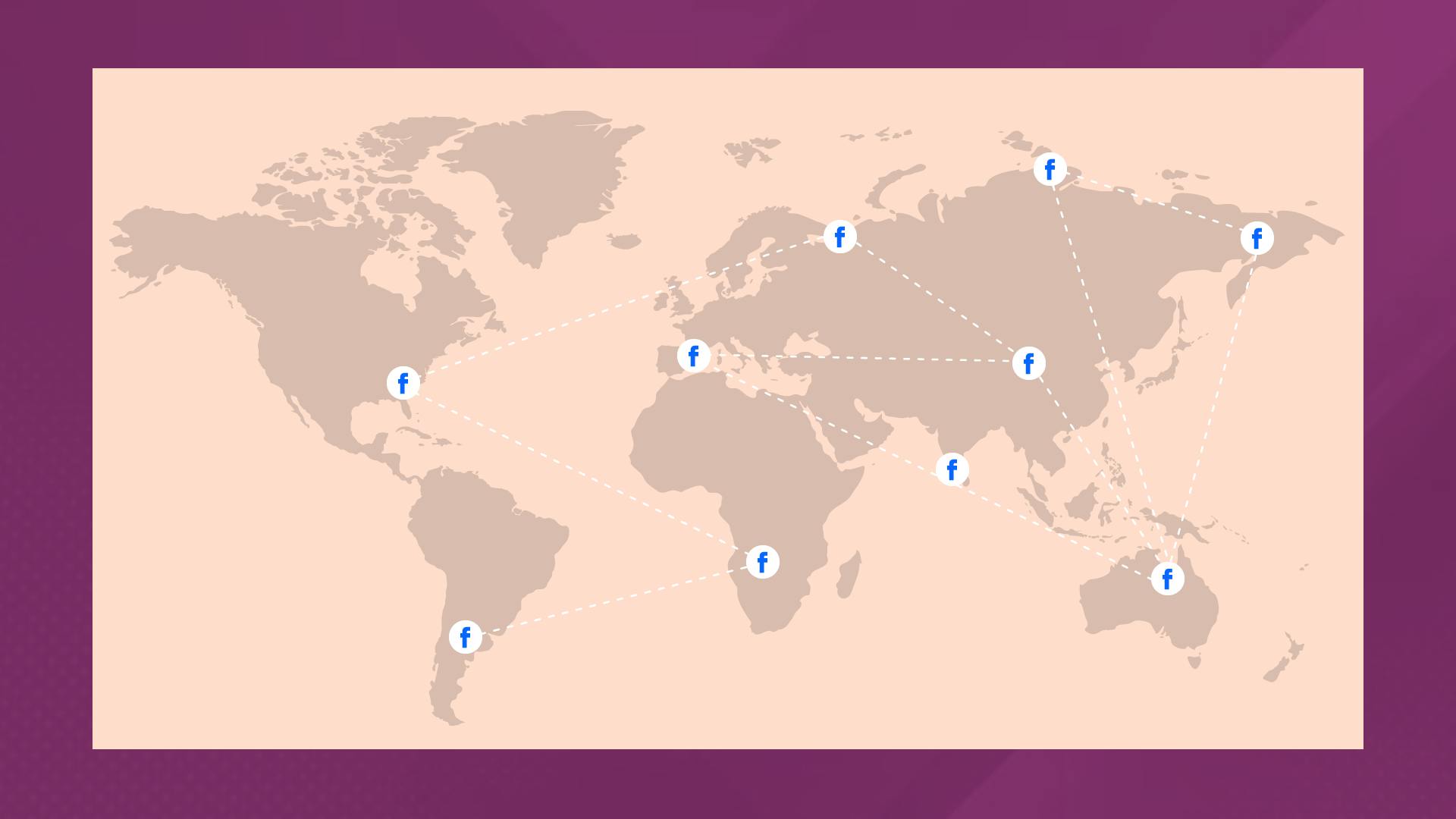
Engaging with relevant Facebook groups and communities provides a direct channel to connect with potential event attendees who share specific interests or affiliations. These groups are hubs of like-minded individuals, making them one of the best spaces for promoting your event.
To navigate these spaces effectively, it's crucial to approach them with a genuine and non-promotional mindset. Start by becoming an active member.
Contribute to discussions, offer valuable insights, and establish yourself as a helpful presence. This builds trust within the community.
When it comes to event promotion, be subtle and considerate. Share valuable resources or insights related to the event's topic without directly pitching it.
For instance, if your event is about digital marketing, share a recent industry article and mention your event in passing.
Additionally, leverage the 'Events' feature on Facebook to create and promote your event within relevant groups. This positions the event as an organic extension of the group's interests.
11. Utilize paid advertising
Paid advertising stands as a potent tool for event promotion, offering precise audience targeting to reach individuals most likely to engage with your event.
When allocating a budget, align it with your event's goals, and consider split testing to optimize spending across different platforms and campaigns.
Compelling ad creatives with visually arresting imagery, persuasive copy, and clear calls to action are essential. A/B testing allows for experimentation with ad formats, visuals, messaging, and audience segments to refine campaigns.
Moreover, retargeting campaigns can re-engage individuals who have demonstrated interest but haven't taken immediate action. This strategy often leads to increased conversion rates.
Employ tracking tools to monitor the performance of your ad campaigns, focusing on metrics like click-through rates, conversion rates, and return on ad spend (ROAS). Use this data to refine strategies for future campaigns.
Additionally, carefully select advertising platforms that best resonate with your target audience. For example, platforms like Facebook and LinkedIn offer robust targeting options, while Google Ads can capture intent-driven searches.
Doing this gives you the ability to reach a highly targeted audience, optimize your budget, and track the effectiveness of your campaigns, ensuring that your event promotion efforts are efficient and impactful.
12. Crowdsource marketing material

Crowdsourcing marketing material for your event can be a game-changer. It taps into the collective creativity and enthusiasm of your community, resulting in authentic, engaging content.
By involving attendees and supporters in the promotion process, you not only save time and resources but also foster a sense of ownership and belonging.
Encourage attendees and supporters to share their perspectives, experiences, and enthusiasm about the event. Organize contests or challenges, provide clear guidelines and incentives, and showcase their contributions on various platforms.
Additionally, offer easy-to-use tools and templates for content creation, and maintain open communication channels for support and feedback.
This collaborative effort not only generates compelling content but also strengthens the bond between your event and its dedicated supporters.
13. Leverage traditional marketing practices
In the era of digital dominance, it's easy to overlook the enduring impact of traditional marketing methods. Embracing a multi-channel approach ensures your event reaches a wider audience.
Consider incorporating print materials such as flyers, posters, and brochures strategically placed in high-traffic areas. Direct mailers, particularly personalized invitations, can create a sense of exclusivity and importance.
Additionally, explore opportunities for partnerships with local businesses and establishments to display event information on physical signage. This extends your event's visibility beyond the digital realm.
Consider print advertisements in relevant publications or community bulletins.
Wrapping up,
Promotion is the heartbeat of any successful event. From dynamic event websites to engaging video content, each tip in this arsenal plays a vital role in amplifying your event's reach.
Early bird discounts, influencer collaborations, and crowd-sourced content add layers of excitement and interaction.
But let's not forget that the world of event promotion is ever-evolving. What are your thoughts on these strategies? Have you discovered unique ways to propel an event to success?
We're eager to hear your insights and experiences. After all, the best strategies often emerge from the collective wisdom of a vibrant community.
If you like what you read, check out the KonfHub blog for similar topics and more! And if you have any questions, or are looking for a comprehensive event management platform to make event planning and promoting a breeze, reach out to us today!

